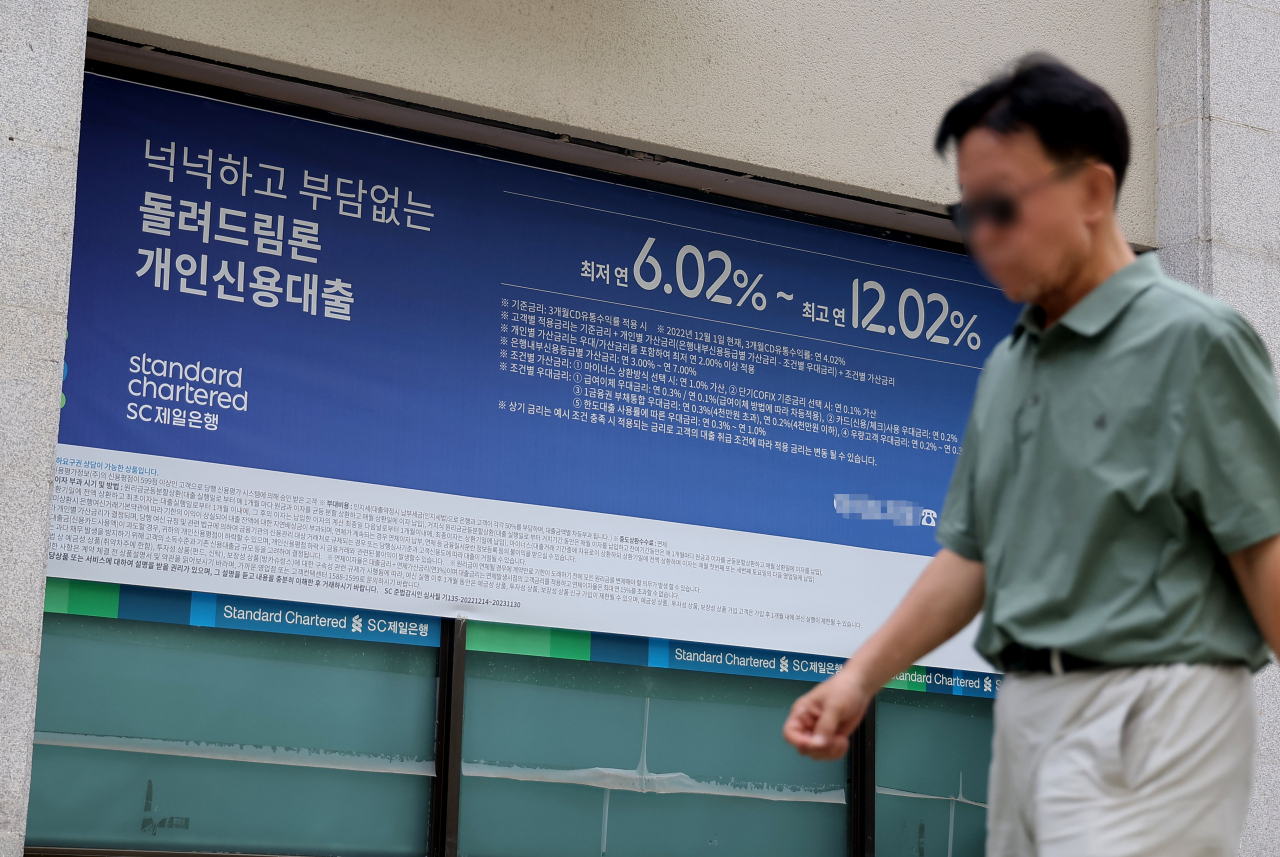
Korea’s household debt is rising at an alarming pace, coming in second in terms of size and growth rate among major economies, data showed Monday.
According to a report issued by the Bank of International Settlements, a financial institution based in Basel, Switzerland, the debt service ratio for households in Korea stood at 13.6 percent last year, the second highest among 17 major countries in the world, just behind Australia at 14.7 percent.
The DSR gauges how much a borrower has to pay for principal debt and interest relative to yearly income. A high level of DSR suggests a person has to pay a significant proportion of his or her income to pay off the debt.
Countries with the highest level of DSR following Australia and Korea were Canada (13.3 percent), the Netherlands (13.1 percent), Norway (12.8 percent), Denmark (12.6 percent) and Sweden (12.2 percent).
Countries with the lowest level of DSR were Italy (4.3 percent), Spain (5.8 percent), Germany (6 percent), Portugal (6.2 percent) and France (6.5 percent).
Korea's DSR level is growing at a fast pace, too, showing the second highest on-year increase among the 17 countries.
Its DSR jumped 0.8 percentage point on-year to 13.6 percent last year. This was the second largest increase following that of Australia, which grew by 1.2 percentage points.
Canada came in third with 0.7 percentage point growth, followed by the US at a 0.4 percentage point jump.
Meanwhile, nine out of the 17 countries on the list saw a drop in their DSR level last year, including Belgium, Denmark, France, Germany, Italy, the Netherlands, Norway, Spain and the UK.
In comparison to before the COVID-19 pandemic, Korea’s DSR jumped by 1.4 percent from 2019 to last year, showing the highest increase among the 17 nations.
The rapid increase in DSR level is assessed to be a result of households having to pay higher principal and interest due to higher interest rates. The Bank of Korea lifted the key rate from 0.5 percent in May 2020 to 3.5 percent in January, before holding the rate for the past few months.
The household loans held by the country's banks amounted to 1062.3 trillion won ($829.2 billion), setting a record high, according to the BOK. The figure has been on the increase for three straight months, mainly from rising mortgage loans.
As household debt snowballs, the BOK is keeping a close eye on the situation.
“At the rate-setting meeting, many board members expressed concern on the rise of the household debt,” BOK Governor Rhee Chang-yong said at a press event Thursday. “We could respond to rising household debt through not just the base rates but also through macroeconomic policies.”





![[KH Explains] No more 'Michael' at Kakao Games](http://res.heraldm.com/phpwas/restmb_idxmake.php?idx=644&simg=/content/image/2024/04/28/20240428050183_0.jpg&u=20240428180321)






![[Grace Kao] Hybe vs. Ador: Inspiration, imitation and plagiarism](http://res.heraldm.com/phpwas/restmb_idxmake.php?idx=644&simg=/content/image/2024/04/28/20240428050220_0.jpg&u=)







